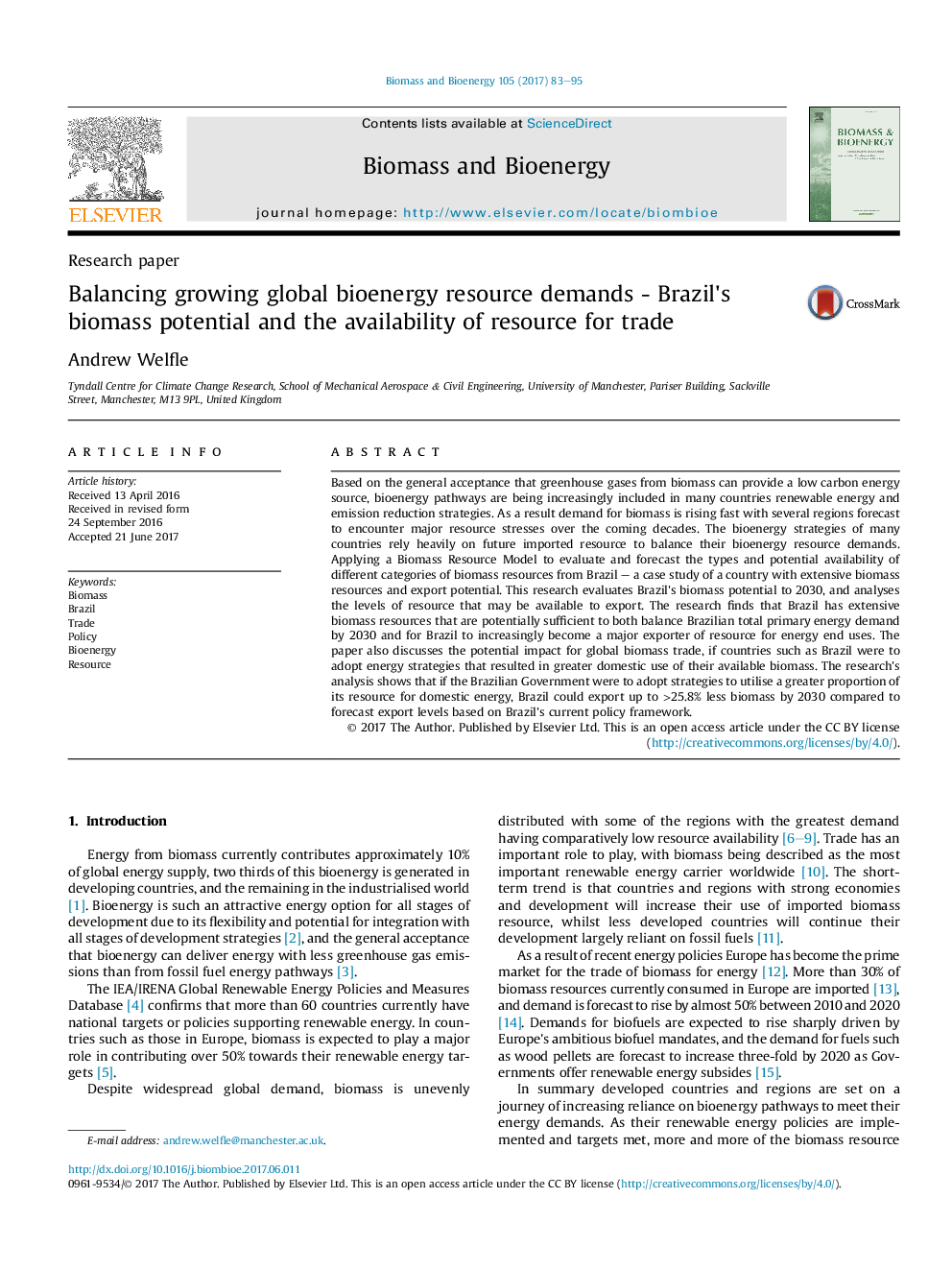ترجمه فارسی عنوان مقاله
بالابردن نیازهای منابع زیست انرژی جهانی رشد - پتانسیل زیست توده برزیل و دسترسی منابع برای تجارت
عنوان انگلیسی
Balancing growing global bioenergy resource demands - Brazil's biomass potential and the availability of resource for trade
| کد مقاله | سال انتشار | تعداد صفحات مقاله انگلیسی |
|---|---|---|
| 105469 | 2017 | 13 صفحه PDF |
منبع

Publisher : Elsevier - Science Direct (الزویر - ساینس دایرکت)
Journal : Biomass and Bioenergy, Volume 105, October 2017, Pages 83-95
ترجمه کلمات کلیدی
زیست توده، برزیل، تجارت، سیاست، بیو انرژی، منبع،
کلمات کلیدی انگلیسی
Biomass; Brazil; Trade; Policy; Bioenergy; Resource;

